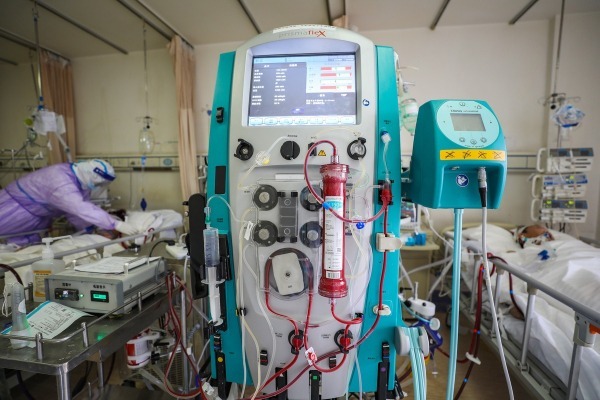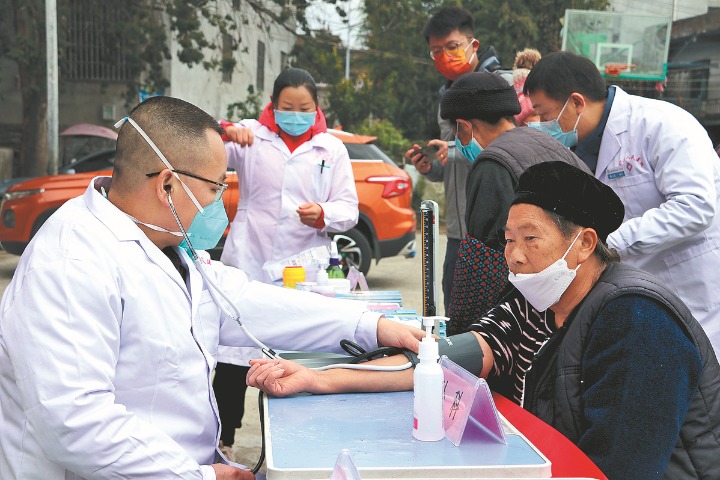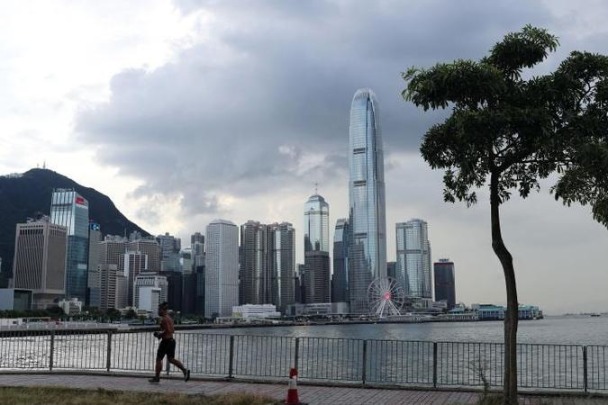Why do designated hospitals in China have so many large medical devices such as Extracorporeal Membrane Oxygenation (ECMO)?
It is important to note that the information provided in this Series is intended for your general knowledge only and is not a substitute for professional medical advice or treatment.

China has dedicated tremendous human and material resources to COVID-19 treatment. A large number of medical devices and supplies were sent to frontline hospitals. WHO visiting experts even found 5 ECMOs in one hospital, which outnumbered most hospitals in Europe. "If I had COVID-19, I'd want to be treated in China." Bruce Aylward, Assistant Director-General of WHO and team leader of the WHO-China Joint Mission on COVID-19, stated after the visit. Designated hospitals for COVID-19 treatment in China have many large medical devices such as ECMO at hand because of the following reasons.
First, China's healthcare industry has built up a big reservoir of talent, devices, techniques and funding over decades of development. Taking ECMO as an example. There are about 430 ECMO centers worldwide practicing around 13,000 treatments annually. China has 260 ECMO centers with about 400 devices conducting nearly 4,000 treatments annually. [1] Wuhan is a regional hub city with 61 Grade-Ⅲ hospitals, among which 27 are Grade-Ⅲ-A hospitals and 5 are among China's top 100 hospitals. Wuhan is thus equipped with relatively advanced medical resources and devices. [2]
Second, a huge number of medical devices were sent to Wuhan under nationwide requisition. The coronavirus outbreak drastically increased Wuhan's demand for large medical devices. The material support team of the Central Guidance Group issued a requisition notice nationwide. Hospitals all over the country responded with great generosity. After two rounds of requisition respectively on February 23 and 26, a total of 21 ECMOs arrived in Wuhan from hospitals across the country and were quickly put into use. [3]
Third, global procurement and urgent express delivery further ensured supplies of medical devices. Upon receiving an urgent procurement requirement on February 10, the Ministry of Industry and Information Technology and the Red Cross Society of China acted immediately and managed to purchase 29 ECMOs from the global market within half a month. The devices were delivered to Wuhan at the fastest possible speed thanks to the support of the Civil Aviation Administration, General Administration of Customs, Air China, China Postal Airlines and other departments in customs clearance and transportation. It is worth noting that there are only a dozen of ECMO manufacturers worldwide and that the common delivery cycle is three and a half months.
In addition to the above sources, some medical aid teams brought ECMOs and other large medical devices with them to Wuhan. Donations from various social sectors also provided some equipment. For example, Tokyo-based Terumo Corporation donated 3 ECMOs, [4] and Han Han, a well-known Chinese writer and director, donated 1 ECMO to Wuhan. [5]
Despite the fact that China lags behind developed countries in medical device possession per capita, China has relatively sufficient advanced medical equipment reserves. In addition to ECMO, China also reserves a large number of CT scanners, ventilators and other important first aid equipment. For example, the number of CT scanners per million people in China increased from 7.8 in 2013 to 14.3 in 2017. Although the number is smaller than that of Japan (92.6 per million people) and the United States (32.2 per million people), China owns a total of 19,000 CT scanners. [6] Besides, most first aid equipment can be produced in China. Generally speaking, China is able to guarantee medical device supplies in the event of a pandemic.
Reference:
[1] 华西证券:"医药生物行业:ICU必备设备ECMO紧缺 国内市场有望从2亿元增加到18亿元",https://finance.sina.cn/2020-02-17/detail-iimxxstf2196377.d.html?from=wap
[2] 武汉医疗卫生投入不够吗?武汉医疗资源数据名列前茅,http://www.chinanews.com/sh/2020/02-14/9090567.shtml
[3] "ECMO,紧急大驰援",https://baijiahao.baidu.com/s?id=1661563024017009462&wfr=spider&for=pc
[4] "从德国到日本再到武汉,ECMO漂洋过海来救命",http://news.sina.com.cn/c/2020-03-12/doc-iimxyqvz9822677.shtml
[5] http://k.sina.com.cn/article_7319634449_1b448c21100100ptdt.html?from=news
[6] 2017年中国CT和MRI市场数据报告:https://www.sohu.com/a/228892849_100119490
Author: Wang Xiongjun, Center for International Knowledge on Development
Please feel free to contact us by sending your questions to question@chinadaily.com.cn or commenting on China Daily app. We will ask experts to answer them.














